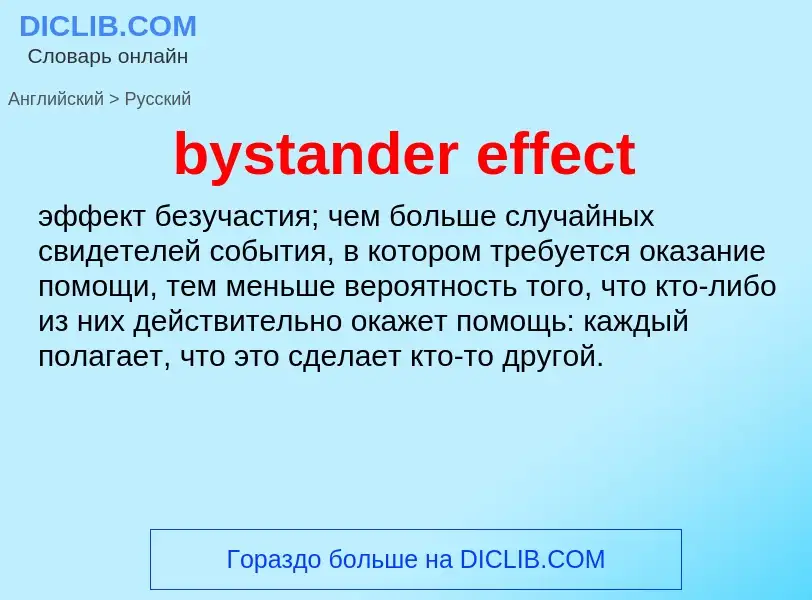Tradução e análise de palavras por inteligência artificial ChatGPT
Nesta página você pode obter uma análise detalhada de uma palavra ou frase, produzida usando a melhor tecnologia de inteligência artificial até o momento:
- como a palavra é usada
- frequência de uso
- é usado com mais frequência na fala oral ou escrita
- opções de tradução de palavras
- exemplos de uso (várias frases com tradução)
- etimologia
bystander effect - tradução para russo
['baistændə]
существительное
общая лексика
свидетель (происходящих событий)
(безучастный) наблюдатель
свидетель
наблюдатель
Definição
Wikipédia
The bystander effect, or bystander apathy, is a social psychological theory that states that individuals are less likely to offer help to a victim in presence of other people. First proposed in 1964 after the murder of Kitty Genovese, much research, mostly in psychology research laboratories, has focused on increasingly varied factors, such as the number of bystanders, ambiguity, group cohesiveness, and diffusion of responsibility that reinforces mutual denial. If a single individual is asked to complete the task alone, the sense of responsibility will be strong, and there will be a positive response; however, if a group is required to complete the task together, each individual in the group will have a weak sense of responsibility, and will often shrink back in the face of difficulties or responsibilities. The theory was prompted by the murder of Kitty Genovese about which it was wrongly reported that 38 bystanders watched passively. Recent research has focused on "real world" events captured on security cameras, and the coherency and robustness of the effect has come under question. More recent studies also show that this effect can generalize to workplace settings, where subordinates often refrain from informing managers regarding ideas, concerns, and opinions.

